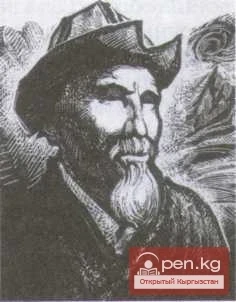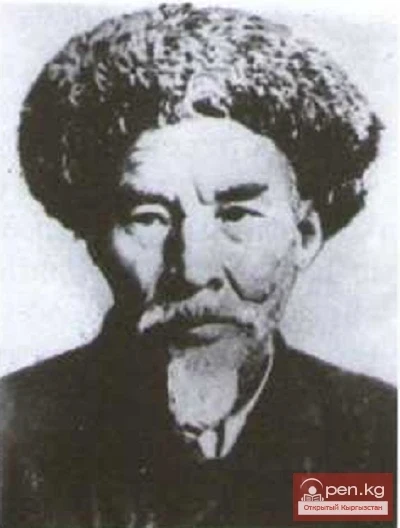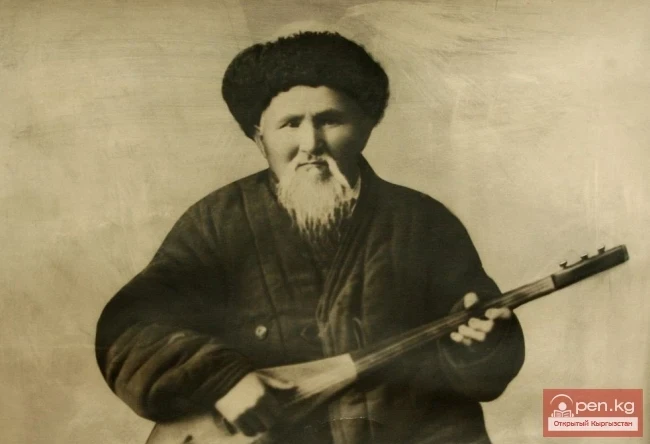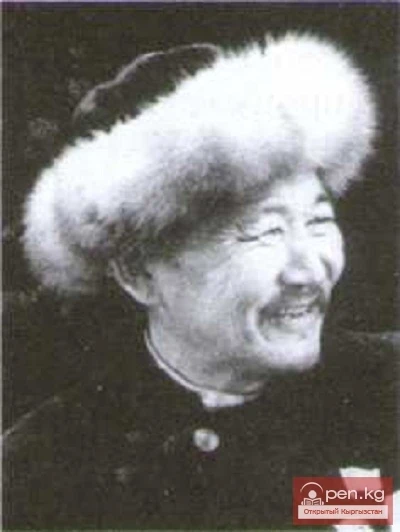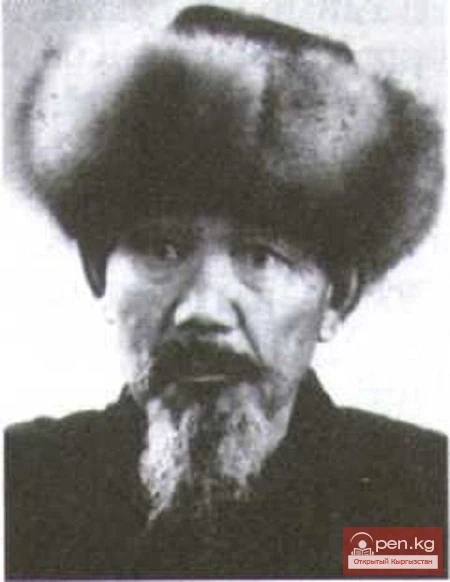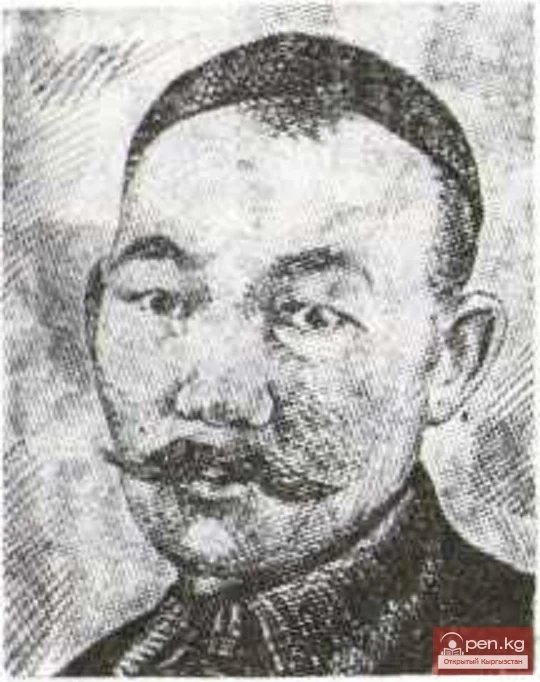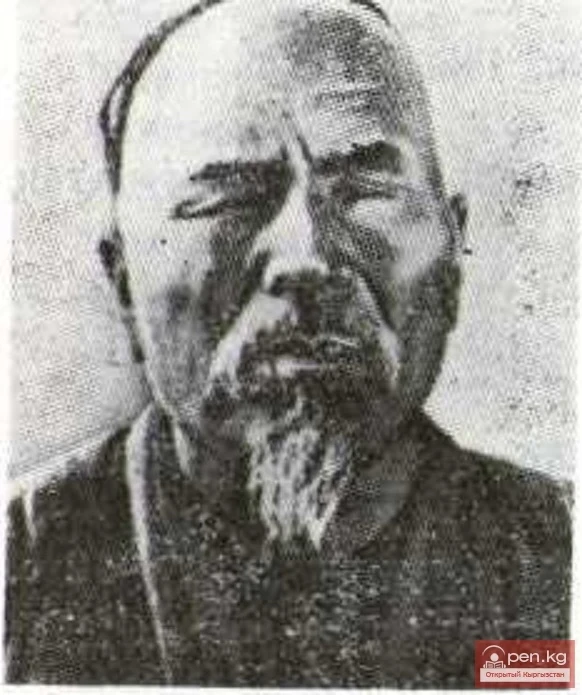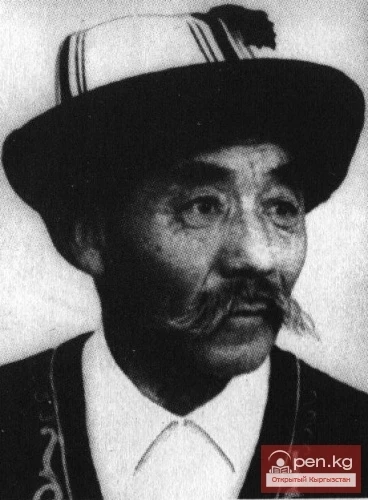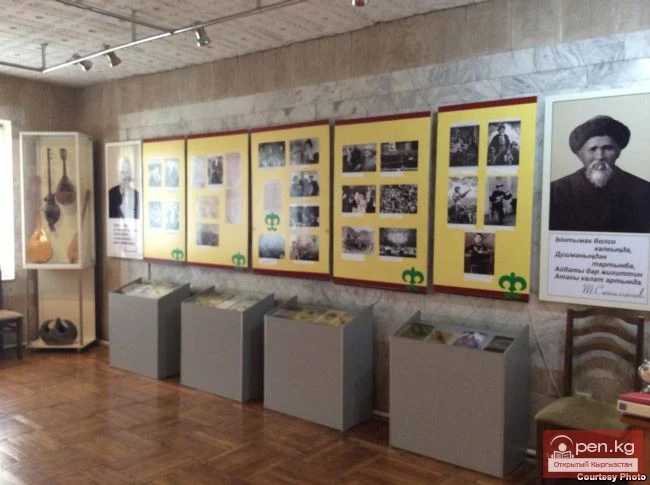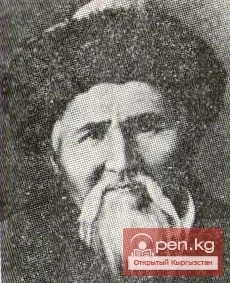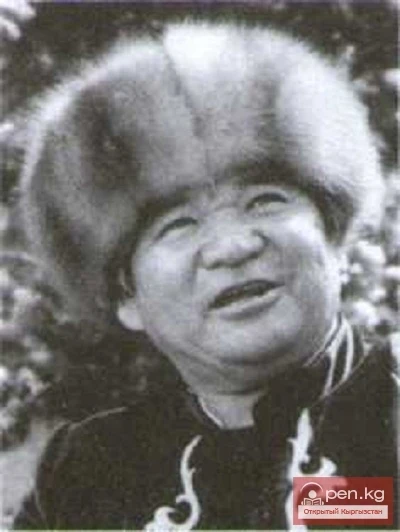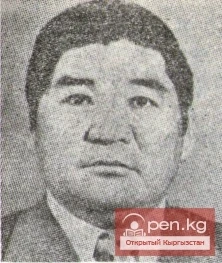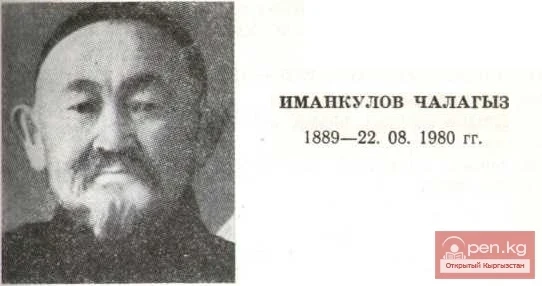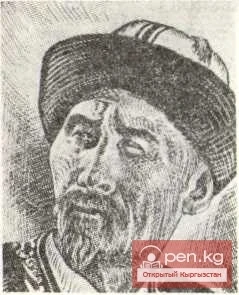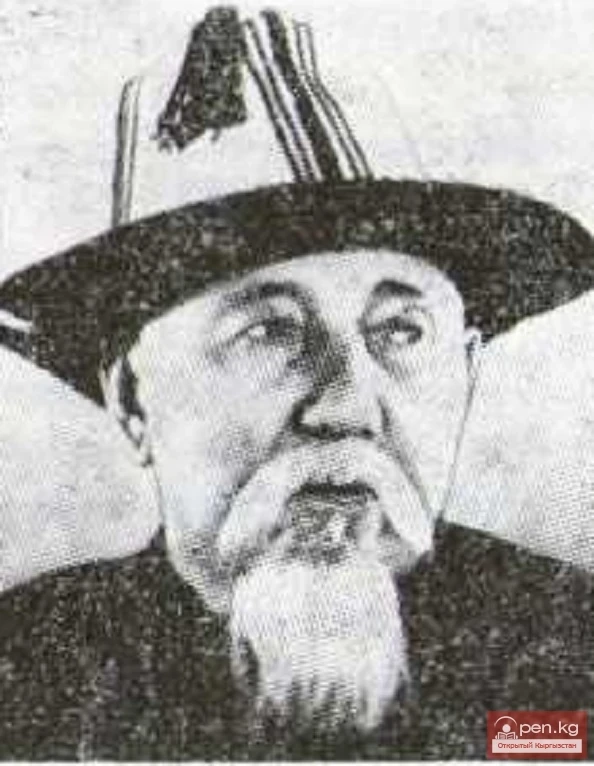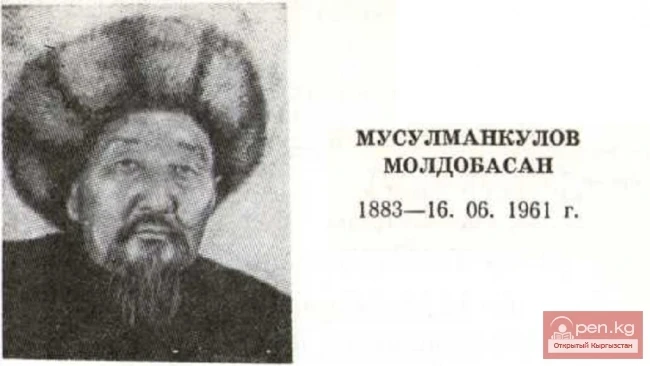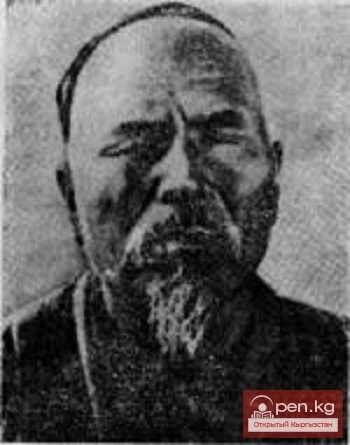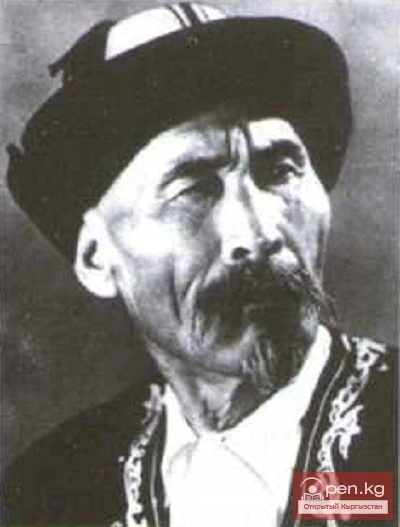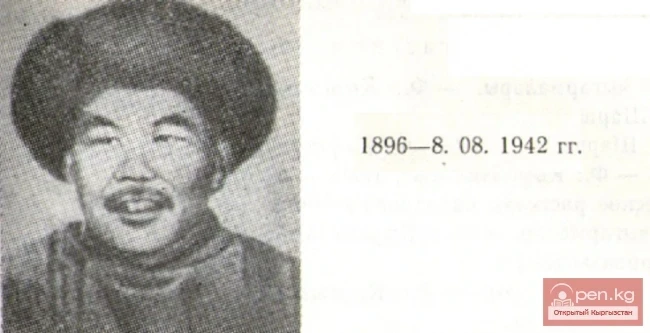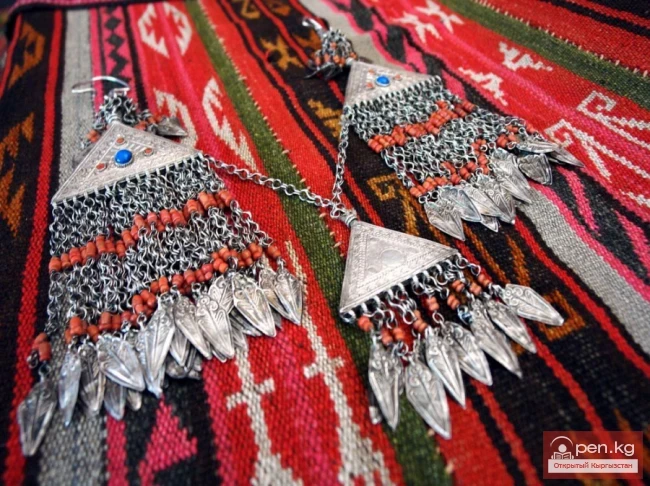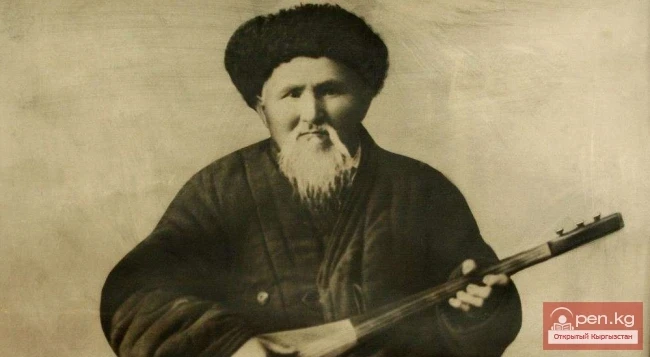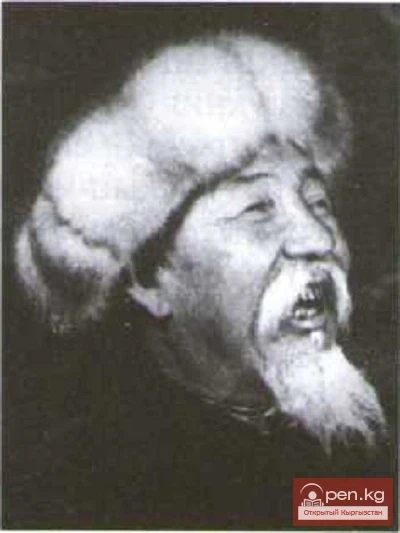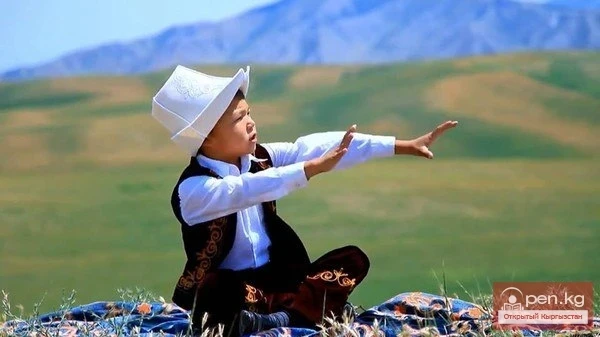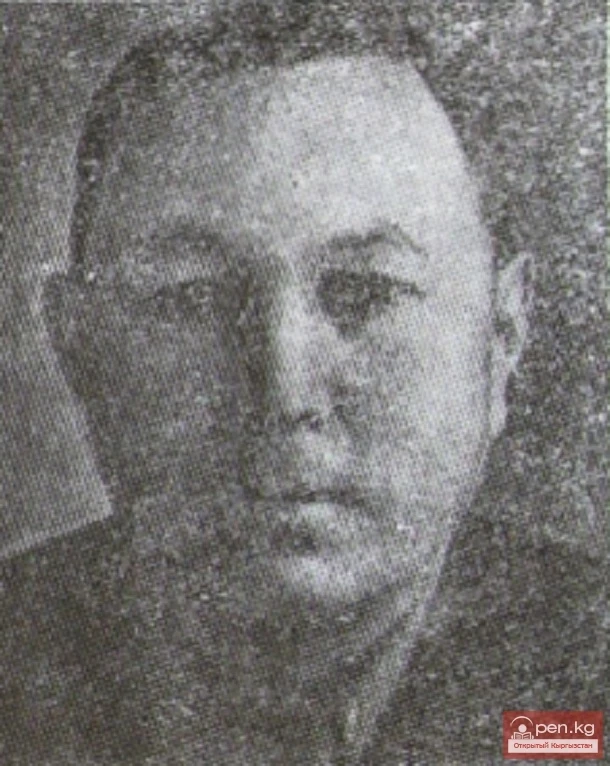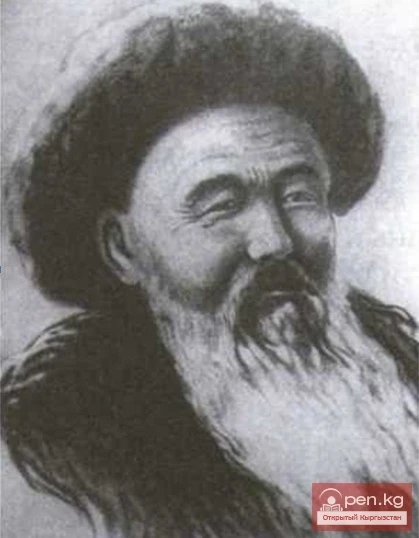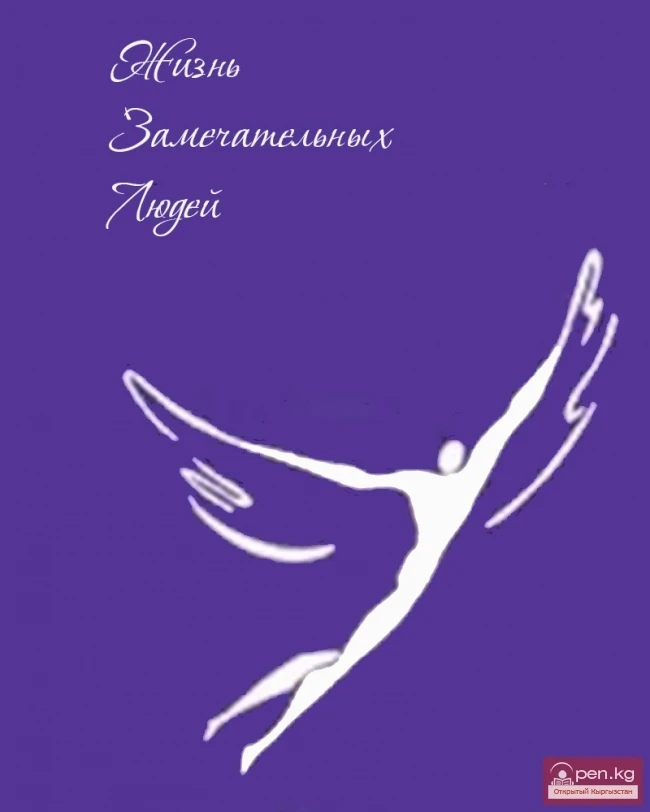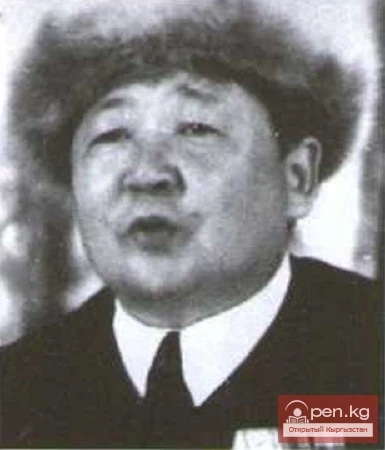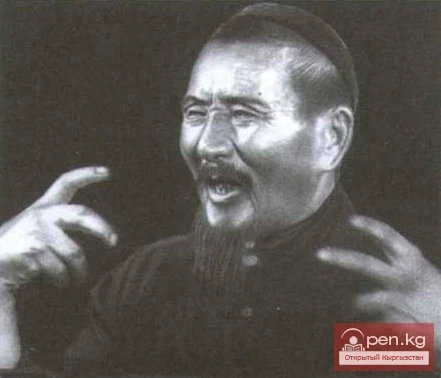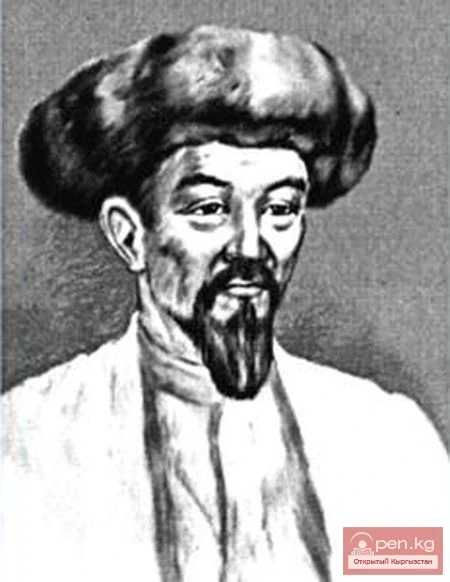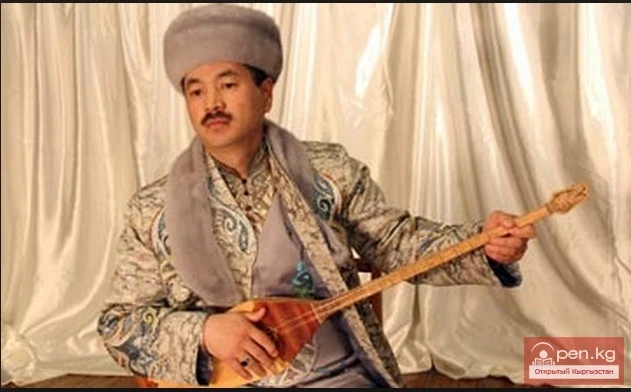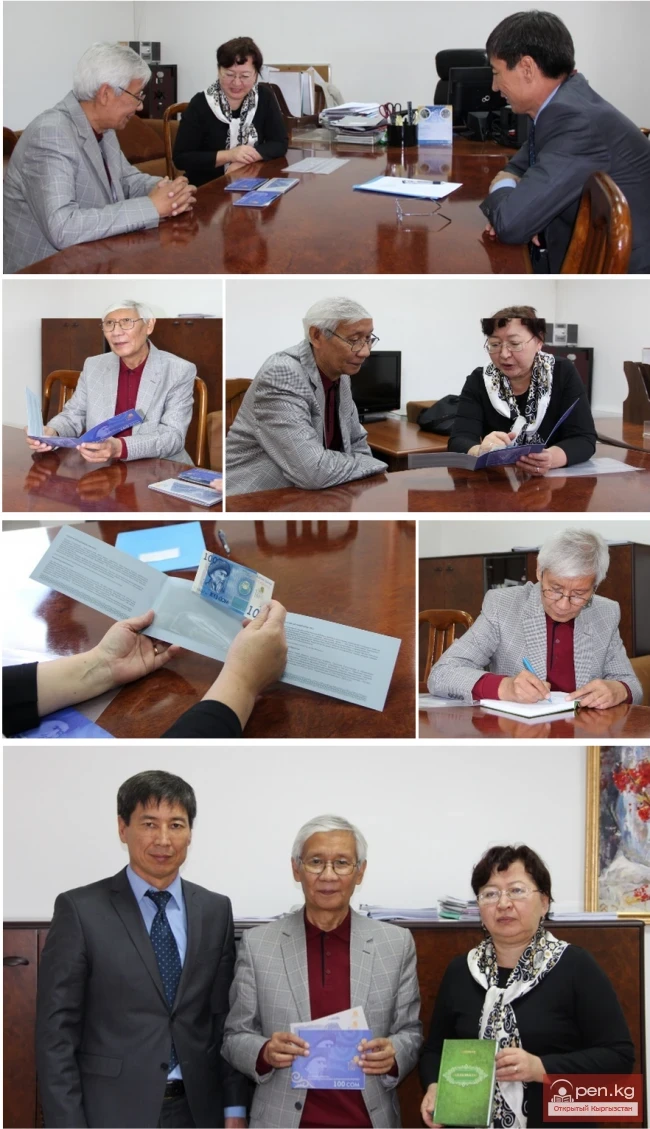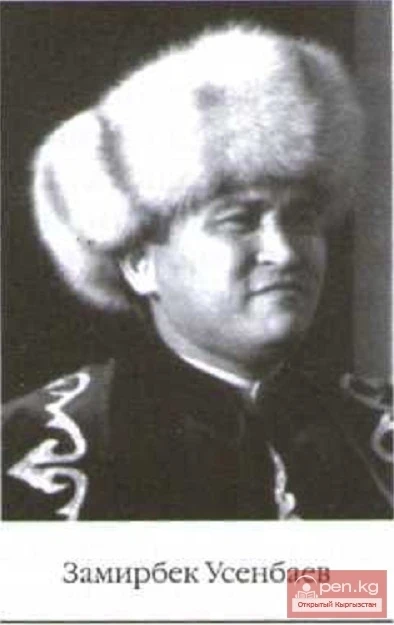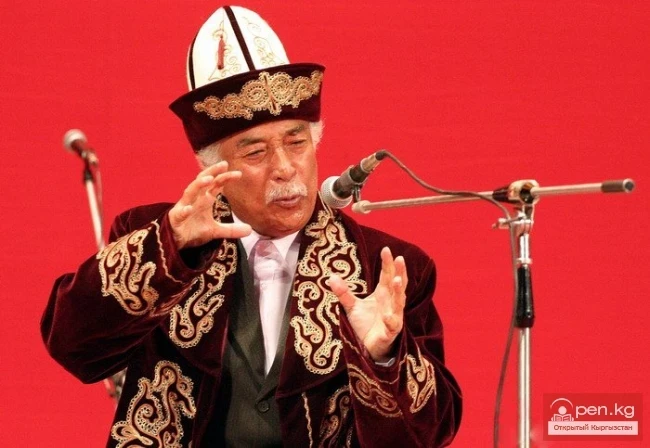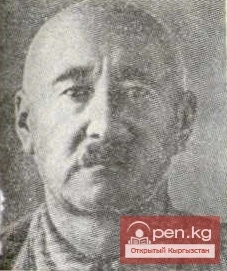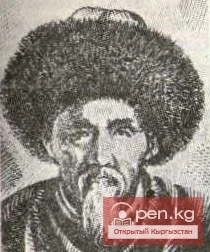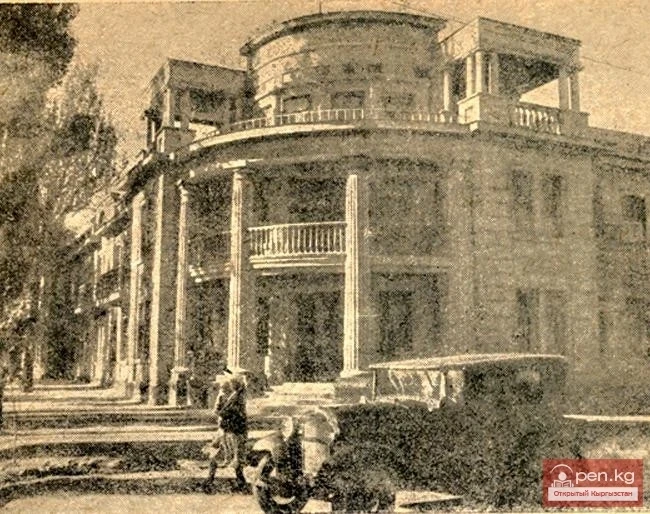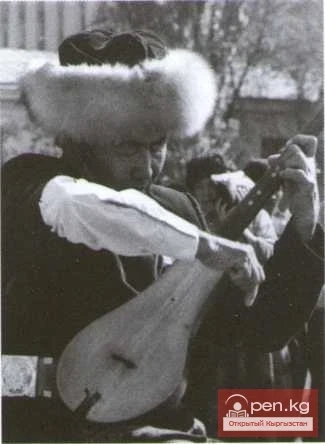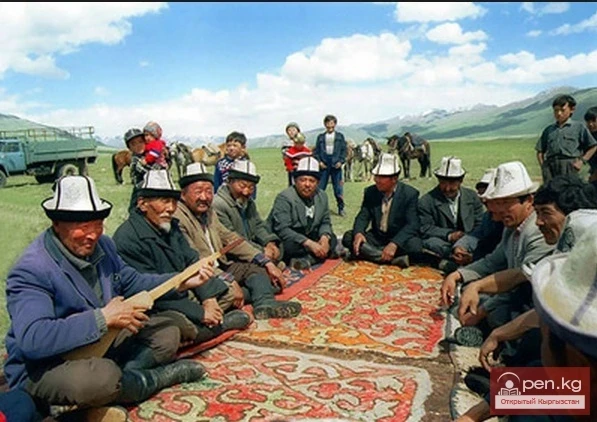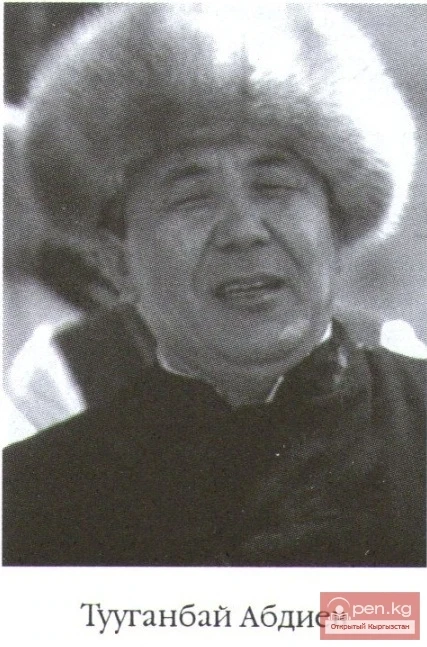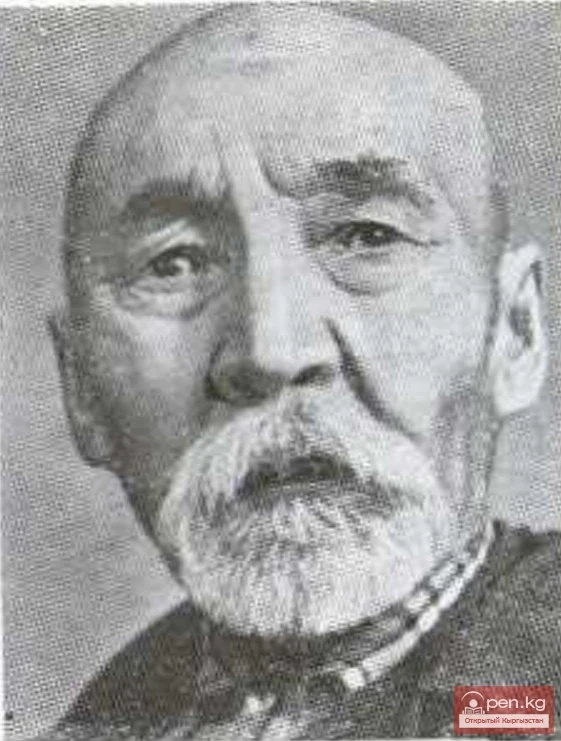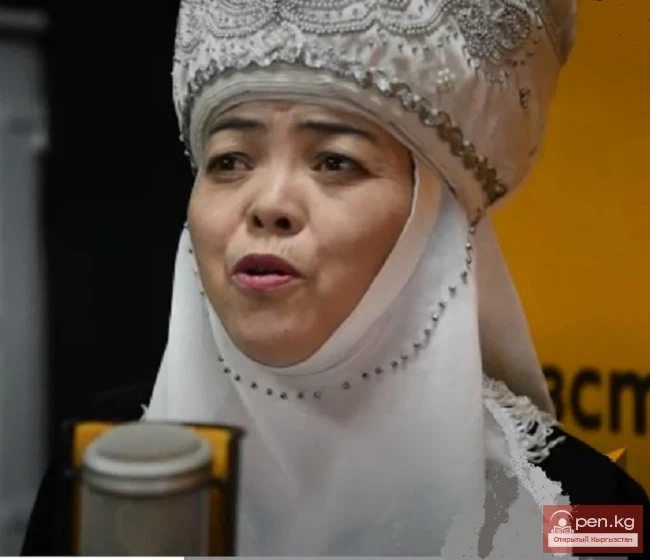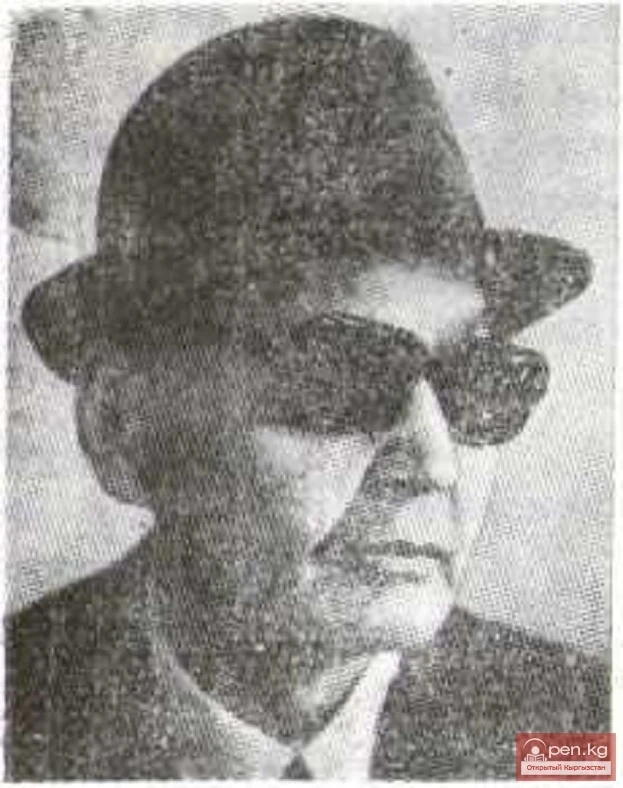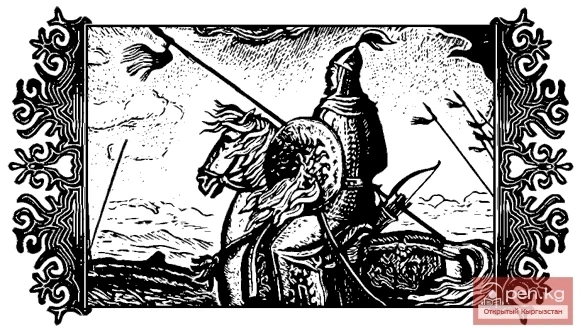
The akyn-improviser, komuz player, and one of the best students of Toktogul, Eshmambet Bayseitov (1867—1926) was born in the village of Kyk-Kazyk, now in the Talas region. Later, poverty forced his family to move to the Ketmen-Tyubinsky district, to the relatives of his mother. He began singing at the age of 15.
At the beginning of his creative path, Eshmambet performed praise and celebratory songs "maktoo yry" in honor of famous people, including representatives of the local nobility. His meeting with Toktogul at the end of the 19th century had a significant influence on him. In Eshmambet's work, anti-religious songs began to appear, and the texts of some of them were recorded by philologist-folklorists. These include "The Song-Dialgoue of Eshmambet and Toktogul Against the Ishans-Mullahs" ("Eshmambet menen Toktoguldun eshen-kalpağa karata yrdagany"), "White Hoof" ("Aktuyak").
Bayseitov was considered a master of akyn dialogue and a good partner in performing "aytysh". As an improvisational singer, he was highly valued by Toktogul, who claimed that "in the art of akyn, no one can surpass Eshmambet; his speech flows like a torrential rain."
Eshmambet's rivals in "aytysh" were well-known akyns — Zhenizhok, Zhanibay, Kurman, Naimanbay, Kalyk, Barpy. However, these "aytysh" performances were not recorded.
Of the numerous "aytysh" performances between Eshmambet and Toktogul, only two have survived to this day. They were recorded by V. Vinogradov from Korgool Dosuiev, who performed them from memory. One of them is interesting because it became the first "aytysh" after Toktogul's return from Siberia. In it, Eshmambet, starting the competition, sings a welcoming song and asks Toktogul to share his experiences. Toktogul, in response, reproaches Eshmambet for not visiting his son Topchubai even once while the akyn was in exile.
After the 1917 revolution, Eshmambet Bayseitov, like Toktogul, composed and performed songs of new content accompanied by the komuz: "Thanking the Government" ("Okmetke yrakmat"), "To the Youth" ("Zhashtarga"), and others. Their melodies have not survived.
